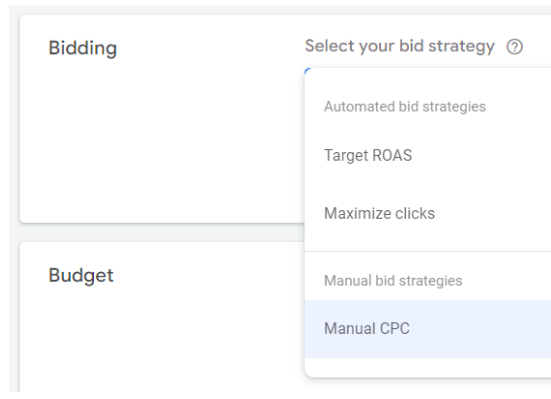In the ever-evolving landscape of digital marketing, technical SEO audits play a pivotal role in enhancing a website’s performance and visibility in search engine results. However, many SEO professionals grapple with delivering audits that not only identify issues but also lead to actionable improvements for their clients. A poorly executed audit can waste time, overlook critical problems, and damage client relationships, ultimately hindering potential gains in search rankings and organic traffic.
To create audits that truly resonate and drive results, it’s essential to focus on quality over quantity, provide actionable solutions, and effectively communicate with clients. Drawing from five years of experience auditing for major U.S. brands, this guide offers seven essential tips to help you deliver high-impact technical SEO audits that can transform your clients’ online presence. Whether you’re new to SEO or a seasoned professional, these insights will empower you to produce audits that not only identify issues but also pave the way for meaningful improvements.
1. Focus on Impact, Not Quantity
One of the most common pitfalls in technical SEO audits is the overwhelming amount of detail included. Many reports attempt to cover every minor issue and best practice, which can dilute the focus and make implementation more challenging for clients. Instead of inundating your clients with a lengthy report, concentrate on the most impactful issues.
Apply the Pareto Principle
Utilize the Pareto Principle, often referred to as the 80-20 rule, which suggests that 80% of results come from just 20% of the causes. In the realm of SEO, addressing a handful of significant issues can yield substantial improvements. For example, optimizing the top 20% of high-traffic pages can be more beneficial than making minor adjustments to every single page.
Use the ICE Framework
Incorporate the ICE framework—scoring recommendations based on Impact, Confidence, and Ease of Execution. This scoring system helps you prioritize changes effectively, balancing potential gains with practical implementation. By honing in on the most impactful actions, you’ll make it easier for clients to see tangible results.
2. Provide Prescriptions, Not Just Descriptions
Simply listing issues without offering solutions is akin to informing someone of a health problem without providing a treatment plan. A truly effective audit should not only identify problems but also offer specific, actionable advice.
Offer Concrete Examples
For instance, when addressing broken backlinks, rank them by value and suggest appropriate redirect paths, prioritizing which ones to fix first. For missing headers, provide optimized header suggestions along with explanations of their importance for SEO.
Additionally, including a “Key Takeaways” section with actionable steps can transform the audit from a mere list of issues into a strategic roadmap for improvement. This approach empowers clients to take specific actions and enhances their understanding of SEO.
3. Start with Keywords Before Using Automated Tools
While automated tools can provide a wealth of data, they often lack the contextual insights necessary for meaningful analysis. Before diving into automated tools, begin by examining keyword performance and traffic patterns to uncover deeper insights.
Combine Tools with Insight
For instance, if automated tools flag speed issues, check whether your site’s speed directly impacts important keywords or if it’s already competitive in search results. Use automated tools to gather data but rely on your human analysis to interpret it effectively. Focusing on keywords and user experience will drive more substantial SEO improvements.
4. Educate Your Clients
The audit process presents a valuable opportunity to educate clients about SEO. Take the time to explain why each recommendation is essential and how it aligns with their broader business goals. This educational approach offers several benefits:
– Increases Buy-In: Clients are more likely to implement changes when they understand the rationale behind them.
– Builds Long-Term Understanding: Educating clients helps them make better SEO decisions in the future.
– Enhances Implementation: Clients who grasp the importance of the recommendations are more likely to prioritize and execute them correctly.
By fostering a deeper understanding of SEO among your clients, you enhance their engagement and commitment to the process.
5. Consider Technical Feasibility
Not all recommendations will be feasible due to technical limitations or existing development priorities. Consulting with developers before finalizing your audit recommendations ensures that they are practical and align with the client’s current setup.
Benefits of Developer Consultation
– Avoid Technical Limitations: Prevent suggesting changes that can’t be implemented due to system constraints.
– Align with Development Priorities: Ensure your recommendations fit within the client’s development roadmap and resource availability.
– Set Realistic Expectations: Establish achievable goals and timelines based on what can realistically be implemented.
By taking technical feasibility into account, you foster trust and avoid setting clients up for disappointment.
6. Plan for Measuring Improvements
An effective audit doesn’t end with the delivery of the report. Establishing methods to measure the impact of implemented changes is crucial for demonstrating value. This ongoing assessment helps clients understand the benefits of the changes and provides valuable feedback for future audits.
Measurement Strategies
– Track Specific Keywords or Pages: Monitoring the performance of targeted keywords or pages makes it easier to quantify the impact of changes.
– Evaluate Improvements: Ensure that the changes lead to measurable enhancements in SEO or user experience.
By setting clear metrics and tracking progress, you help clients visualize the positive outcomes of their investments in SEO.
7. Communicate Regularly
Finally, maintain open lines of communication throughout the audit process and beyond. Regular check-ins can help clarify any questions clients may have, provide additional context for your recommendations, and adjust strategies as needed based on evolving business goals or market conditions.
Building a Collaborative Relationship
Fostering a collaborative relationship with clients not only enhances trust but also encourages them to actively engage with your recommendations. This partnership approach makes it more likely that they will implement changes effectively and continue to seek your expertise in the future.
By focusing on impactful recommendations, providing actionable solutions, and fostering client education, you can create technical SEO audits that lead to meaningful improvements. Remember, the ultimate goal is to help clients achieve better search rankings and increased organic traffic. By implementing these seven tips, you’ll be well on your way to delivering high-impact technical SEO audits that not only meet client expectations but exceed them. Embrace the challenge, and watch as your efforts translate into real results for your clients’ websites.









Leave feedback about this